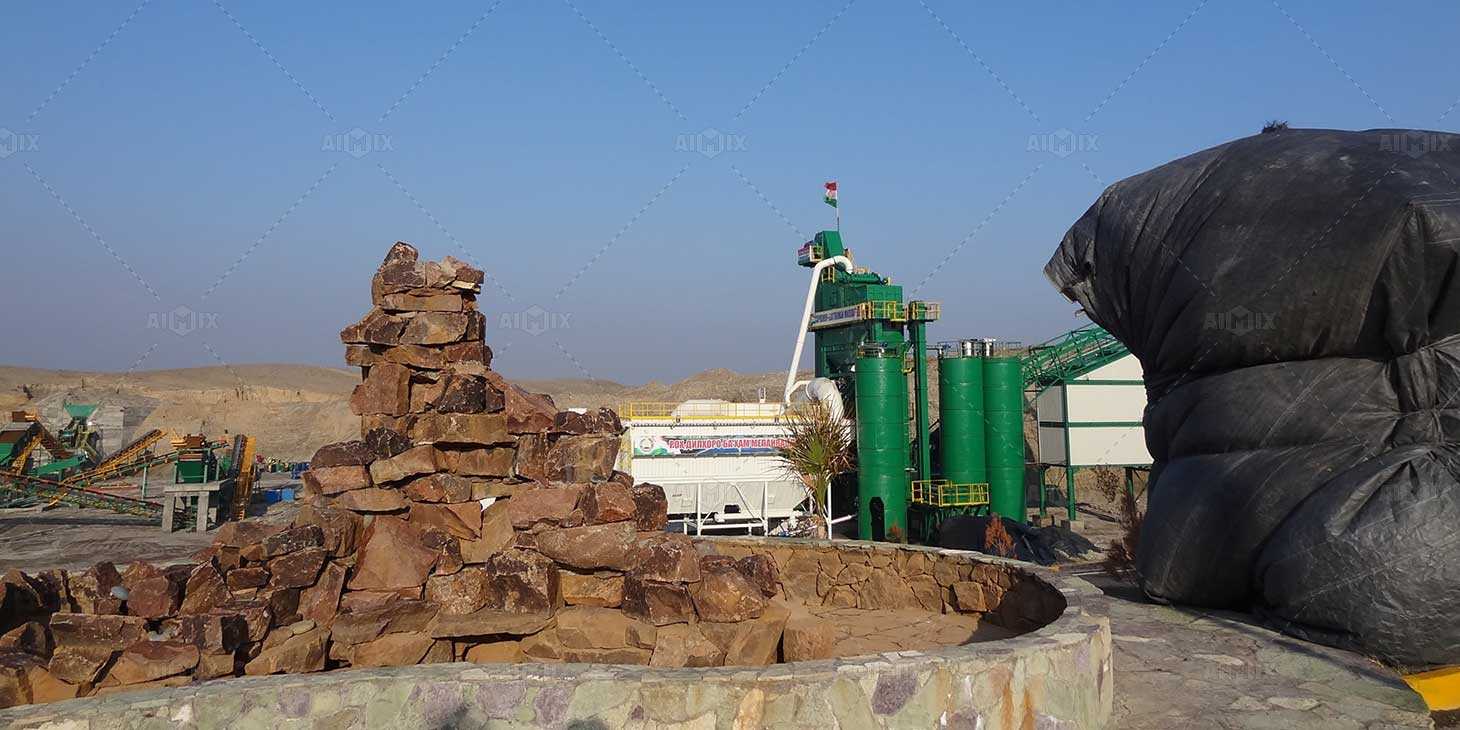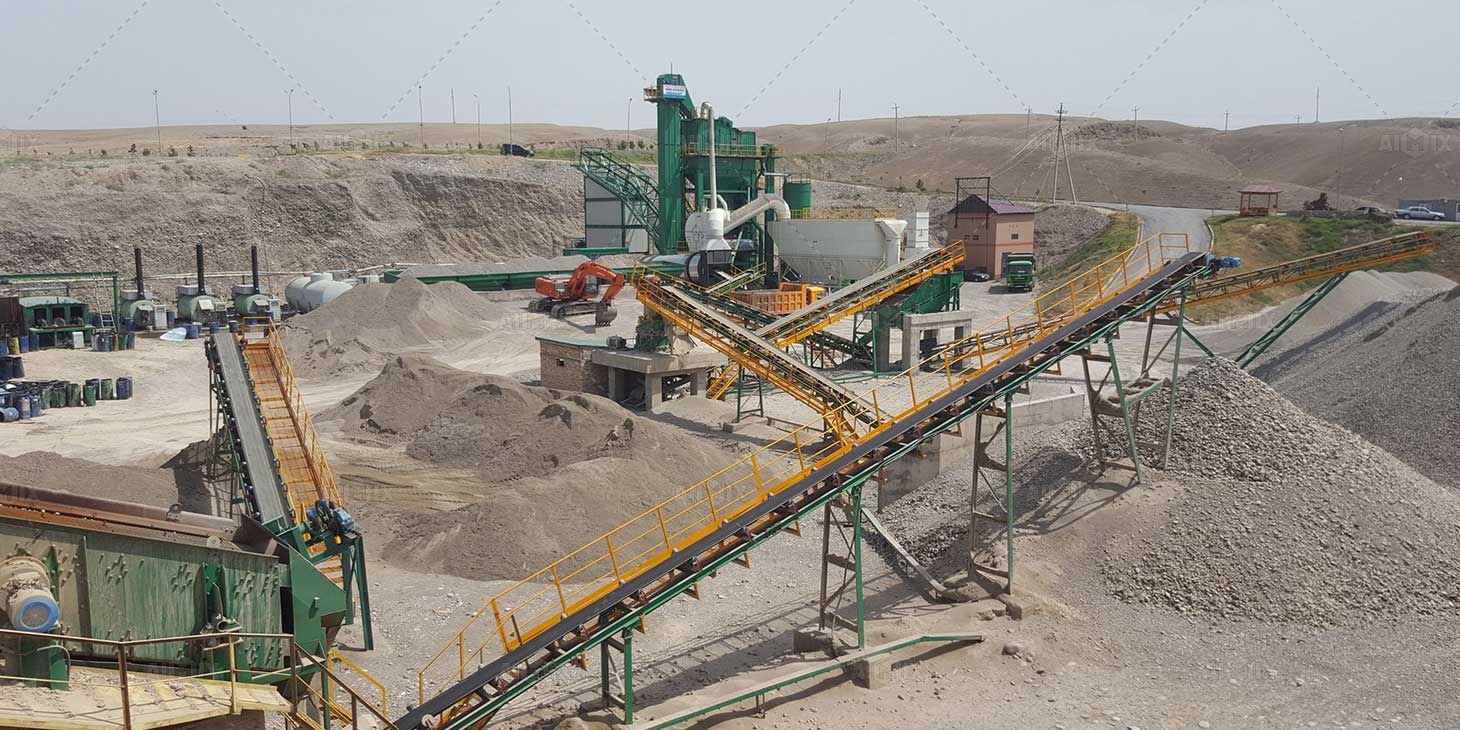The asphalt industry is undergoing a profound transformation, propelled by cutting-edge technologies that redefine efficiency and productivity. In the Philippines, the integration of advanced technologies into asphalt plants is a pivotal step towards elevating the infrastructure development landscape. This article delves into the forefront of innovation, exploring the nuances of advanced technology for asphalt plants available in the Philippines.
1. Intelligent Process Automation
1.1 Artificial Intelligence in Asphalt Production
The convergence of artificial intelligence (AI) and asphalt production heralds a new era of precision and optimization. AI algorithms analyze vast datasets in real-time, fine-tuning the asphalt mixing process for optimal performance. From temperature control to aggregate proportions, AI ensures a level of accuracy and consistency previously unattainable. The result is a marked reduction in waste, enhanced product quality, and a substantial increase in production efficiency.
1.2 Machine Learning for Predictive Maintenance
Predictive maintenance powered by machine learning algorithms has emerged as a cornerstone in minimizing downtime and operational disruptions. Smart sensors embedded within the batch type hot mix plant collect data on equipment health, predicting potential failures before they occur. This proactive approach not only extends the lifespan of critical components but also streamlines maintenance schedules, maximizing overall operational uptime.

The proactive nature of predictive maintenance is transforming the reliability of asphalt plants. By preemptively addressing potential issues, the industry in the Philippines experiences reduced maintenance costs and prolonged equipment lifespan. This shift towards data-driven decision-making ensures that asphalt plants operate at peak efficiency, meeting the demands of infrastructure projects with unparalleled reliability.
2. Sustainable Practices through Technological Integration
2.1 Energy-Efficient Asphalt Production
In the pursuit of sustainable practices, advanced technologies are optimizing energy consumption in asphalt production. Innovations such as infrared heating and energy recovery systems contribute to a significant reduction in the carbon footprint of asphalt plants. This not only aligns with global environmental goals but also positions the Philippines as a leader in adopting eco-friendly asphalt manufacturing processes.
2.2 Recyclability and Circular Economy
The integration of technology extends beyond mere efficiency to embrace the principles of a circular economy. Advanced mini asphalt plant incorporate recycling mechanisms that allow for the reuse of reclaimed asphalt pavement (RAP). This not only reduces the demand for raw materials but also mitigates environmental impact, creating a sustainable and eco-conscious approach to asphalt production.
Technological advancements are steering the asphalt industry towards a more sustainable future. The implementation of energy-efficient practices and recycling mechanisms not only aligns with global environmental initiatives but also positions the Philippines as a pioneer in sustainable infrastructure development. These innovations not only meet the current demands of the industry but also ensure a responsible and forward-thinking approach to asphalt production.

3. Connectivity and Remote Monitoring
3.1 Internet of Things (IoT) Integration
The Internet of Things (IoT) has permeated the asphalt industry, enabling seamless connectivity and real-time monitoring. Sensors and devices embedded in the asphalt plant communicate vital data to a centralized system, allowing for remote monitoring and control. This level of connectivity enhances operational visibility, facilitates prompt decision-making, and contributes to the overall adaptability of asphalt production processes. Learn more info about the process on this page: https://aimixasphaltplant.com/how-does-an-asphalt-plant-work/.
3.2 Cloud-Based Management Systems
Cloud-based management systems are emerging as a linchpin in efficient asphalt plant operations. These systems provide a centralized platform for data storage, analysis, and management. Asphalt plant operators in the Philippines can access real-time information, historical data, and performance analytics from anywhere, fostering agility and informed decision-making.
The integration of IoT and cloud-based management systems signifies a paradigm shift in the operational landscape of asphalt plants. The ability to monitor and manage plant activities remotely not only enhances efficiency but also positions the industry at the forefront of digitalization. In the Philippines, this connectivity is instrumental in meeting the demands of a rapidly evolving infrastructure sector, ensuring adaptability and responsiveness in asphalt production.
In conclusion, the amalgamation of intelligent process automation, sustainable practices, and connectivity through advanced technologies is reshaping the asphalt industry in the Philippines. As the nation embraces these innovations, it propels itself into a future where infrastructure development is not only efficient but also environmentally conscious and technologically advanced. The asphalt plant in the philippines is not merely products; they are embodiments of a progressive and transformative approach to infrastructure development.